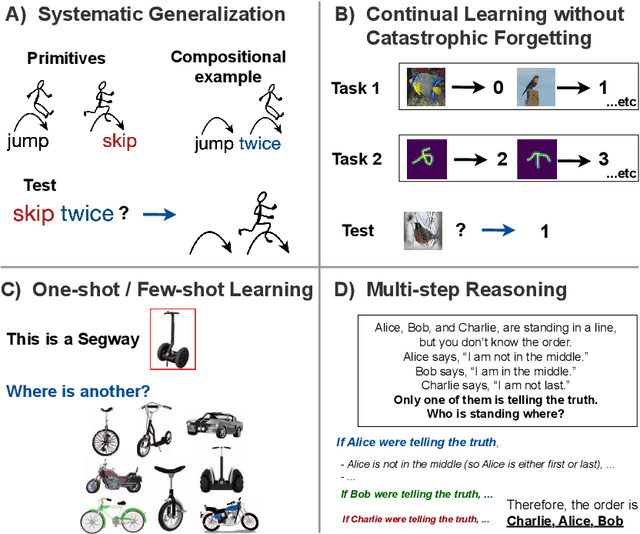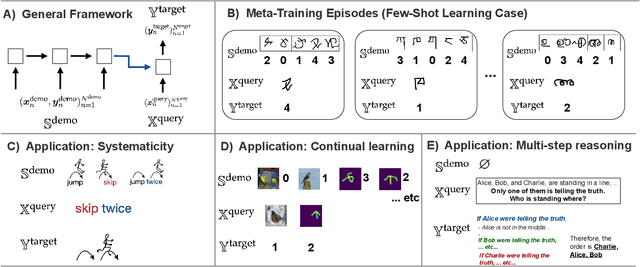Neural networks that overcome classic challenges through practice
Paper and Code
Oct 14, 2024


Since the earliest proposals for neural network models of the mind and brain, critics have pointed out key weaknesses in these models compared to human cognitive abilities. Here we review recent work that has used metalearning to help overcome some of these challenges. We characterize their successes as addressing an important developmental problem: they provide machines with an incentive to improve X (where X represents the desired capability) and opportunities to practice it, through explicit optimization for X; unlike conventional approaches that hope for achieving X through generalization from related but different objectives. We review applications of this principle to four classic challenges: systematicity, catastrophic forgetting, few-shot learning and multi-step reasoning; we also discuss related aspects of human development in natural environments.
 Add to Chrome
Add to Chrome Add to Firefox
Add to Firefox Add to Edge
Add to Edge